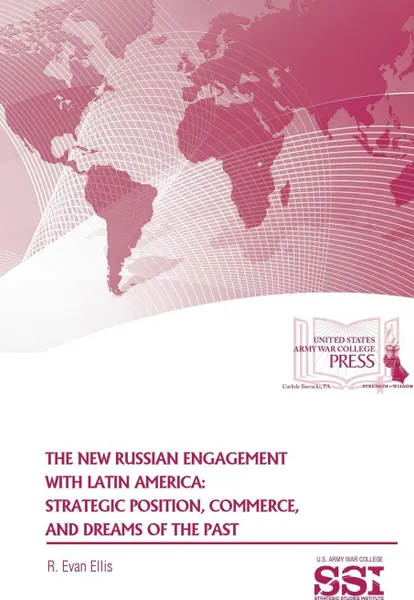The New Russian Engagement With Latin America. Strategic Position, Commerce, and Dreams of The Past 12+
2015
136 страниц
Категория: Энциклопедии, справочники
ISBN: 9781329783492
Язык: Английский
📘 In recent years, attention by the U.S. national security establishment to challenges in the Western Hemisphere has concentrated on issues of transnational organized crime, socialist populism, potential terrorist threats, and similar challenges arising from poverty, inequality, and weak governance in parts of the region. As Latin America and the Caribbean nations have expanded their economic and other forms of engagement with countries beyond the region, the majority of attention has gone to activities in the region by the People's Republic of China, and to a lesser extent, by the Islamic Republic of Iran. The equally important re-engagement with the region by the Russian Federation during this period has received less attention, particularly among scholarly articles. Russia's re-engagement with the region, which began in earnest in 2008, coincided with an escalation in tension with the United States over the role of Russia in the civil war in Georgia and the related succession of Abkhazia and South Ossetia.
Мнения
